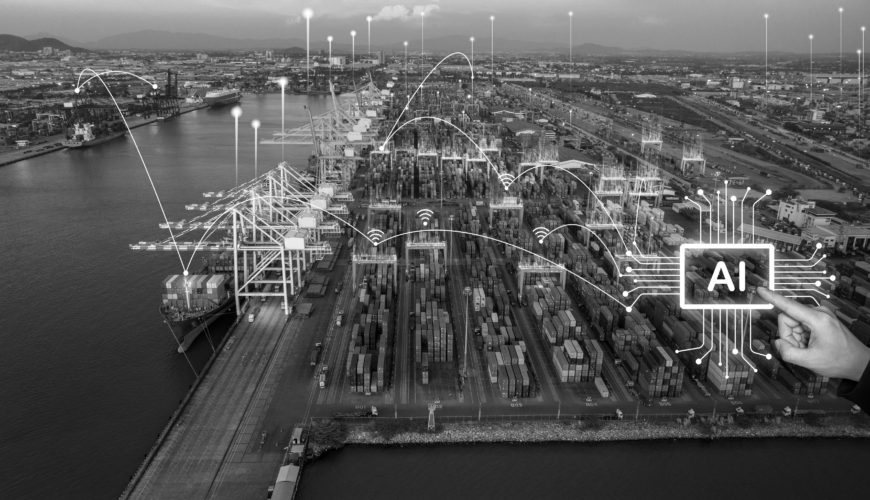Logistics companies are hoping that generative AI will help them with most supply chain tasks in the near future. Visibility is key in today’s supply chain management. Customers and shippers alike depend on knowing where their shipments are as they make their way across the supply chain. Robust software and tracking tools combine to deliver that visibility, allowing for reaction time and the ability to pivot when unexpected disruptions take over. It’s only logical, then, that supply chain executives are beginning to look at how generative artificial intelligence tools, such as ChatGPT, might help improve that visibility, ultimately upping efficiency and delivering cost savings. Still, most say they are easing their way into the technology, especially when it comes to their customers.
Several prominent supply chain-related firms have publicly stated their interest in generative AI. All are considering the role generative AI might play in automating tasks like shipment tracking, booking loads, and declaring imports. The advantage of generative AI in these roles is its ability to sort through massive amounts of information, identify patterns, and ultimately make predictions from that intel. When carried out effectively, generative AI has the potential to complete tasks that once took hours in just a few minutes time.
Eventually, logistics companies are hoping that generative AI will help them with most supply chain tasks, including procurement, inventory management, forecasting, and shipping decisions. In the meantime, those same companies are trying generative AI on for size in the arenas of customer support, which provides a natural fit for the technology. The hope is that AI will be able to step in for humans, providing quick, tailored answers to customer questions. This is a step up for the current, prevalent chatbots that supply pre-programmed answers, or even human customer service reps, who sometimes need to dig for answers.
Despite its near- and far-term potential, however, generative AI remains limited in its capabilities. For starters, generative AI is dependent on reliable data, which companies sometimes fail to provide. Other concerns revolve around security—some companies have banned their employees from using ChatGPT, for instance. The concern is that the system could use proprietary data or customer information.
Using generative AI to make critical supply chain decisions remains in the distant future for now. Because customer support in the industry involves moving large quantities of products by air, trucks, trains and sea, the data behind it must be shareable and trustworthy. At the moment, this data is often proprietary, complicated, and fast changing.
When considering the many steps along a supply chain, plenty can go wrong. If a customer reaches out for help and is answered by generative AI that delivers incorrect information, things can go south quickly. Generative AI’s reliability is gaining ground every day, but having a human customer service rep alongside it remains a good idea until the technology is fully mature. Right now, generative AI cannot be counted on 100 percent of the time, and that’s not a gamble many businesses can afford to take. The future is (almost) here, but taking a measured approach is the best way to go. OPSdesign is your source for supply chain automation solutions. Contact Us today!


